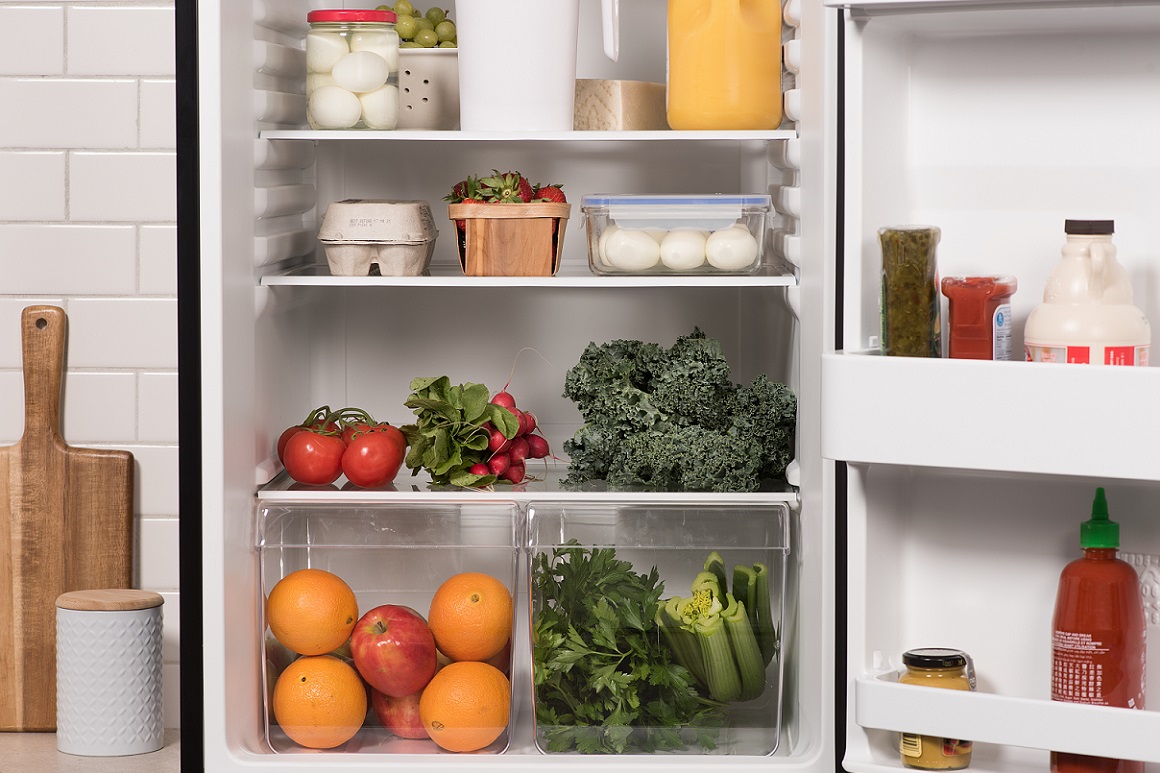Cooked eggs last up to one week in the fridge. Store them in an airtight container for best results.

Proper storage of cooked eggs ensures they remain fresh and safe to eat. Refrigeration plays a crucial role in maintaining their quality. Place cooked eggs in a clean, airtight container to prevent them from absorbing other odors. Label the container with the date to keep track of Freshness.
Regularly check the eggs for any signs of spoilage, such as an off smell or unusual texture. Following these guidelines helps you enjoy your cooked eggs within the optimal timeframe, reducing food waste and promoting food safety in your kitchen.
Cooked Eggs Shelf Life
Understanding the cooked eggs’ shelf life is essential for health. Proper storage prevents foodborne illnesses. Learn how long cooked eggs last in the fridge. Discover factors affecting their freshness and typical storage duration.
Factors Affecting Freshness
- Storage Temperature: Keep cooked eggs at or below 40°F (4°C).
- Storage Method: Store in an airtight container.
- Initial Freshness: Fresh eggs last longer after cooking.
- Handling: Avoid leaving eggs out for long periods.
Typical Duration
| Type of Cooked Egg | Refrigerator Shelf Life |
|---|---|
| Hard-boiled eggs (in shell) | Up to 1 week |
| Hard-boiled eggs (peeled) | Up to 5 days |
| Scrambled eggs | 3 to 4 days |
| Egg salads | 3 to 4 days |
Storing cooked eggs properly ensures they remain safe and fresh. Follow these guidelines for optimal storage.

Credit: www.eggs.ca
Ideal Storage Conditions
Understanding the Ideal Storage Conditions for cooked eggs ensures they stay fresh and safe. Proper storage can prevent spoilage and foodborne illnesses. Follow these guidelines to keep your boiled eggs in the best condition.
Temperature Settings
Cooked eggs should be stored in the fridge at the right temperature. The ideal fridge temperature is between 35°F to 40°F (1.6°C to 4.4°C). This range helps slow down bacterial growth. Use a thermometer to check your fridge’s temperature. It should always stay within this range.
Place cooked eggs on a shelf, not in the door. The door has temperature fluctuations. Consistent temperatures keep eggs fresh longer.
Proper Containers
Storing cooked eggs in the correct container is crucial. Use airtight containers or tightly wrap eggs in plastic wrap. This prevents them from absorbing fridge odors. It also keeps out bacteria.
Label the container with the date you cooked the eggs. This helps you keep track of theFreshnessess. Cooked eggs usually last up to one week in the fridge.
Here’s a quick guide to ideal storage:
| Storage Method | Duration |
|---|---|
| Airtight Container | Up to 7 days |
| Plastic Wrap | Up to 7 days |
- Keep the fridge temperature between 35°F to 40°F.
- Use airtight containers or plastic wrap.
- Label containers with the cooking date.
Following these tips ensures your cooked eggs stay fresh and safe to eat.
Signs Of Spoiled Eggs
Knowing the signs of spoiled eggs can keep you safe. Spoiled eggs can cause food poisoning. Learn to spot them with your senses.
Visual Indicators
First, check the eggs for visual indicators of spoilage. Look for any cracks on the shell. Cracks can let bacteria in.
- Check for a slimy or powdery shell. A slimy shell indicates bacteria growth.
- Inspect the egg white and yolk. A cloudy egg white means it is old but not spoiled.
- Look for pink, green, or black spots. These spots mean mold or bacteria.
Odor Changes
The smell of the egg is a strong indicator. Fresh eggs do not have a strong smell.
- Crack the egg into a bowl. If it smells bad, it is spoiled.
- Rotten eggs have a sulfur smell. This is like a rotten egg smell.
Use your senses to check eggs. It keeps you safe from spoiled food.
:max_bytes(150000):strip_icc()/how-long-do-fresh-eggs-last-4859426-v1-49ff5eb7a392441e91fdede92a09a55b.png)
Credit: www.treehugger.com
Extending Freshness
ExtendiFreshnessess is crucial for enjoying cooked eggs longer. Proper storage helps maintain their taste and safety. Below, we discuss practical methods for extending tFreshnessess of your boiled eggs.
Freezing Cooked Eggs
Freezing cooked eggs can be a game-changer. It helps keep them fresh for months. Follow these steps to freeze cooked eggs:
- Cool the eggs: Allow cooked eggs to cool completely before freezing.
- Separate the yolks and whites: For best results, freeze them separately.
- Store in airtight containers: To prevent freezer burn, use airtight containers or freezer bags.
- Label and date: Write the date on the container to keep trackFreshnessness.
You can freeze scrambled eggs, omelets, and even hard-boiled egg yolks. Avoid freezing hard-boiled egg whites as they become rubbery.
Refrigeration Best Practices
Refrigeration is key to keeping cooked eggs fresh. Follow these best practices for optimal storage:
- Use airtight containers: Keep cooked eggs in airtight containers to prevent moisture loss and contamination.
- Set the fridge temperature: Maintain your fridge at 40°F (4°C) or below for safety.
- Store on the middle shelf: Place eggs on the middle shelf where the temperature is most consistent.
- Avoid the fridge door: The door’s temperature fluctuates, affecting egg freshness.
Label and date your containers to track how long they’ve been stored. Cooked eggs typically last 3-4 days in the fridge when stored properly.
Health Risks
Understanding the health risks of storing cooked eggs in the fridge is crucial. Consuming spoiled eggs can lead to serious health issues. Let’s delve into the potential illnesses and safety precautions.
Potential Illnesses
Eating spoiled eggs can cause severe food poisoning. Common bacteria include Salmonella and E. coli. These bacteria can lead to:
- Nausea
- Vomiting
- Diarrhea
- Stomach cramps
Children, the elderly, and pregnant women are at higher risk. Symptoms can appear within hours of consumption. Seek medical attention if symptoms are severe.
Safety Precautions
Follow these guidelines to avoid health risks:
- Store cooked eggs in the fridge within two hours of cooking.
- Keep the fridge temperature below 40°F (4°C).
- Use airtight containers to store the eggs.
- Label the containers with the date of cooking.
- Consume the eggs within three to four days.
Always check for signs of spoilage before eating. Look for an off smell or discoloration. When in doubt, throw it out.
| Storage Method | Maximum Duration |
|---|---|
| Fridge (below 40°F) | 3 to 4 days |
| Room Temperature | 2 hours |
Following these safety precautions can help prevent foodborne illnesses. Proper storage and handling are crucial to keeping eggs safe.

Credit: www.coastappliances.ca
Using Leftover Eggs
Got leftover cooked eggs? Don’t let them go to waste. With a bit of creativity, you can turn them into delicious dishes. Here are some ideas to help you use up those extra eggs.
Recipe Ideas
- Egg Salad: Chop cooked eggs and mix with mayonnaise. Add mustard and relish for extra flavor.
- Deviled Eggs: Halve the eggs, scoop out the yolks, and mix with mayonnaise. Add mustard and paprika.
- Egg Sandwich: Slice eggs and layer them on bread. Add lettuce and tomato.
- Egg Fried Rice: Dice the eggs and stir-fry with rice, veggies, and soy sauce.
Creative Uses
- Top Salads: Slice or chop eggs and sprinkle them over salads.
- Stuff Avocados: Fill avocado halves with chopped eggs and seasoning.
- Make Egg Pasta: Blend eggs into pasta dough for added protein.
- Egg Tacos: Use chopped eggs as a filling for soft tacos.
Common Misconceptions
Many people are unsure about how long cooked eggs last in the fridge. There are several common misconceptions about this topic. Let’s debunk some myths and clarify the facts.
Myths About Storage
There are many myths about storing cooked eggs. Some people think that cooked eggs spoil quickly. Others believe they can last for weeks. Both ideas are wrong.
- Myth 1: Cooked eggs last a month in the fridge.
- Myth 2: Cooked eggs spoil after one day.
- Myth 3: Storing eggs in the shell keeps them fresh longer.
These myths can lead to food waste or health risks. It’s important to know the correct storage guidelines.
Clarifying Facts
Cooked eggs can last 3-4 days in the fridge. This applies to all types of cooked eggs, including boiled, scrambled, and fried. Storing them properly ensures they stay fresh and safe to eat.
| Type of Cooked Egg | Fridge Storage Duration |
|---|---|
| Boiled Eggs | 3-4 days |
| Scrambled Eggs | 3-4 days |
| Fried Eggs | 3-4 days |
Always store cooked eggs in an airtight container. This helps prevent contamination and keeps the eggs fresh longer.
- Place eggs in a clean container with a tight lid.
- Label the container with the date of storage.
- Keep the fridge temperature at or below 40°F (4°C).
Following these tips ensures your cooked eggs stay fresh and safe to eat.
Frequently Asked Questions
How Long Can I Keep Scrambled Eggs in the Fridge?
You can keep scrambled eggs in the fridge for up to 4 days. Store them in an airtight container.
How to Preserve Cooked Eggs?
Store cooked eggs in an airtight container. Please keep them in the refrigerator. Consume within 3-4 days for best quality. Reheat thoroughly before eating.
How Long Will Fried Eggs Last In The Refrigerator?
Fried eggs last up to 4 days in the refrigerator. Store them in an airtight containeFreshnessshness.
What’s The Longest You Can Keep Eggs In The Refrigerator?
You can keep eggs in the refrigerator for up to 5 weeks. Store them in their original carton.
Conclusion
Keep your cooked eggs fresh and safe by storing them properly in the fridge. Follow the guidelines to enjoy them for up to a week. Always check for signs of spoilage before consuming. Proper storage ensures you can enjoy delicious and safe meals every time.
Keep these tips in mind for opFreshnessshness.


GIPHY App Key not set. Please check settings